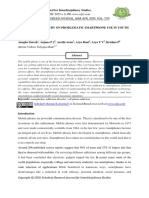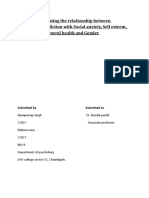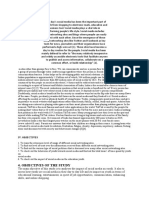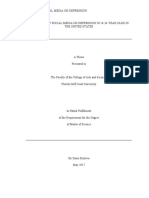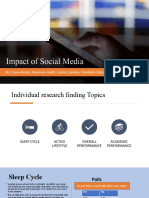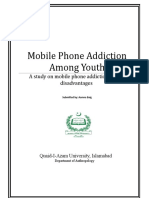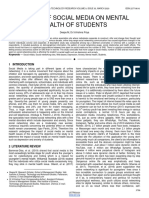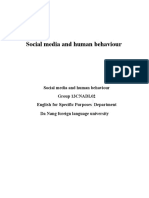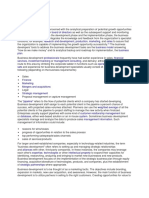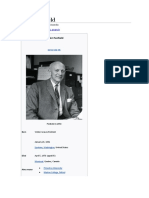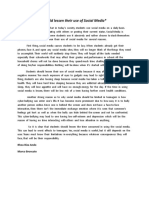0% found this document useful (0 votes)
504 views5 pagesPsychological Effects of Cell Phone Addiction
Excessive cell phone use can negatively impact psychological health and relationships. It has been linked to increased risk of sleep disorders, depression, anxiety, and relationship problems due to neglecting offline social interaction. Some signs of problematic cell phone use include spending more time on the phone than intended, using it to avoid other tasks, feeling anxious without the phone, and checking it frequently even when nothing new is expected. Anyone concerned about cell phone addiction should speak to a mental health professional about treatment options.
Uploaded by
Sandeep SoniCopyright
© © All Rights Reserved
We take content rights seriously. If you suspect this is your content, claim it here.
Available Formats
Download as PDF, TXT or read online on Scribd
0% found this document useful (0 votes)
504 views5 pagesPsychological Effects of Cell Phone Addiction
Excessive cell phone use can negatively impact psychological health and relationships. It has been linked to increased risk of sleep disorders, depression, anxiety, and relationship problems due to neglecting offline social interaction. Some signs of problematic cell phone use include spending more time on the phone than intended, using it to avoid other tasks, feeling anxious without the phone, and checking it frequently even when nothing new is expected. Anyone concerned about cell phone addiction should speak to a mental health professional about treatment options.
Uploaded by
Sandeep SoniCopyright
© © All Rights Reserved
We take content rights seriously. If you suspect this is your content, claim it here.
Available Formats
Download as PDF, TXT or read online on Scribd
/ 5
